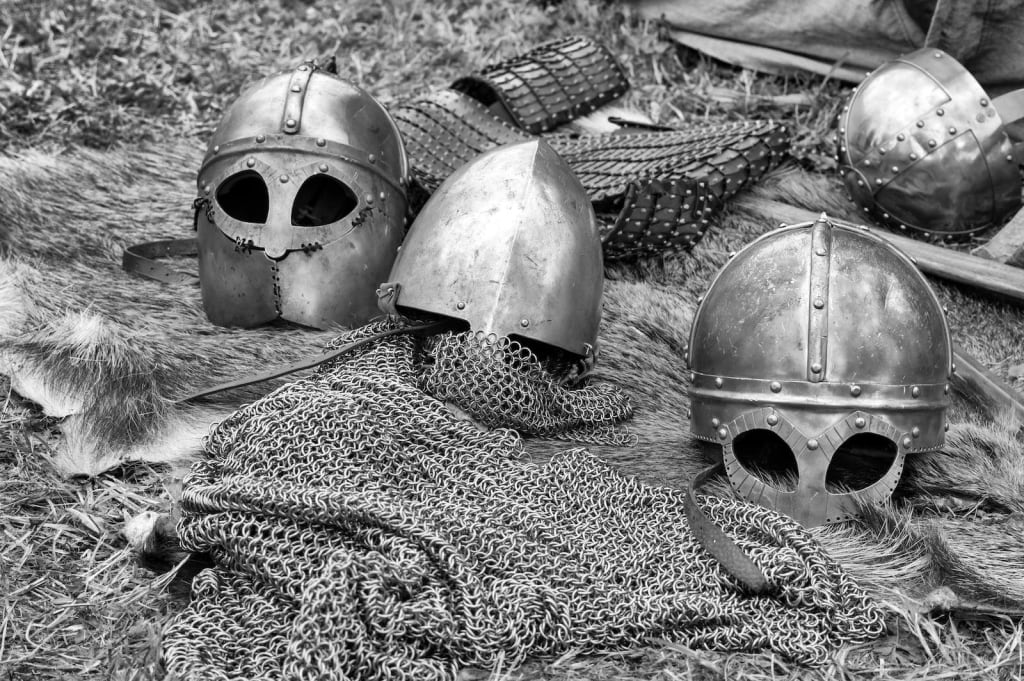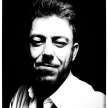
1. "Dulce et Decorum Est" by Wilfred Owen
2. "The Charge of the Light Brigade" by Alfred Lord Tennyson
3. "For the Fallen" by Laurence Binyon
4. "The Soldier" by Rupert Brooke
5. "Break of Day in the Trenches" by Isaac Rosenberg
These poems offer a unique perspective on the experiences of war, capturing both its physical and emotional toll. They are also notable for their use of language, which often reflects the chaos and confusion of battle, as well as the camaraderie and bravery of soldiers.
"Dulce et Decorum Est" is a poem by Wilfred Owen, who served as a soldier in World War I. The title of the poem is a Latin phrase that means "it is sweet and fitting," and was often used to encourage young men to enlist in the war effort. However, the poem itself presents a very different view of war.
The poem describes a gas attack on Owen's unit, which leaves one soldier dying in a horrifying manner. The speaker recounts the scene in vivid detail, describing the soldier's suffering as he tries to escape the toxic gas and the way that his comrades are unable to help him.
The poem is a powerful critique of the idea that war is glorious or noble. Owen argues that the reality of war is much different from the romanticized images often presented in propaganda. He also highlights the devastating impact of war on those who fight in it, showing the reader the human cost of conflict.
In conclusion, "Dulce et Decorum Est" is a powerful and moving poem that offers a powerful commentary on the reality of war and its impact on those who fight in it.
"The Charge of the Light Brigade" is a poem by Alfred Lord Tennyson that tells the story of a famous charge made by British cavalry during the Crimean War. The poem is a dramatic and emotional portrayal of the events of the battle, and it highlights the bravery and sacrifice of the soldiers who took part in the charge.
The poem begins by describing the situation on the battlefield, as the soldiers prepare to charge into the enemy lines. The speaker then goes on to describe the charge itself, as the soldiers ride towards the enemy with their sabers drawn. Despite the odds against them, the soldiers continue their charge, and the poem ends with a celebration of their bravery and sacrifice.
The poem is notable for its use of vivid and powerful language, which helps to convey the drama and emotion of the situation. It also highlights the idea that soldiers are willing to make great sacrifices for their country, even when they know that the odds are against them.
In conclusion, "The Charge of the Light Brigade" is a powerful and moving poem that captures the bravery and sacrifice of soldiers in war. It is a tribute to the soldiers who fought in the Crimean War and serves as a reminder of the great sacrifices that have been made in the name of freedom and liberty.
"For the Fallen" is a poem by Laurence Binyon that honors the memory of soldiers who died in World War I. The poem reflects on the sacrifices made by the soldiers and their families, and it expresses the idea that their memory will live on long after they are gone.
The poem begins by expressing sympathy for the families of fallen soldiers and acknowledging the pain and loss that they have suffered. The speaker then goes on to reflect on the soldiers themselves, describing them as brave and noble, and expressing the belief that their sacrifice will not be forgotten.
The poem also touches on the idea that the soldiers' deaths were not in vain, and that their legacy will continue to inspire future generations. The poem ends with a call to remember the fallen soldiers and to honor their memory in the years to come.
In conclusion, "For the Fallen" is a moving and poignant tribute to the soldiers who died in World War I. The poem expresses the idea that their sacrifices will not be forgotten, and it offers comfort and hope to the families of the fallen. The poem serves as a reminder of the tremendous toll that war takes on individuals and societies, and it honors the brave and selfless soldiers who gave their lives in service to their country.
"The Soldier" is a poem by Rupert Brooke that expresses the idea that death in the service of one's country is a noble and desirable end. The poem reflects the patriotic and idealistic spirit of the time, and it captures the idea that soldiers who die in war are remembered as heroes.
The poem begins by describing a soldier's love for his country, and the idea that if he were to die far from home, his spirit would still be close to his beloved England. The speaker goes on to express the belief that the soldier's death will bring blessings to his country, and that his memory will live on long after he is gone.
The poem also touches on the idea that death in the service of one's country is a desirable end, and that it is a way for a person to achieve a sort of immortality. The speaker expresses the belief that the soldier's spirit will continue to live on, inspiring future generations and bringing comfort and peace to his loved ones.
In conclusion, "The Soldier" is a patriotic and idealistic poem that reflects the spirit of the time in which it was written. The poem honors the memory of soldiers who have died in war, and it offers comfort and hope to their families and loved ones. The poem serves as a reminder of the sacrifices that have been made in the name of freedom and liberty, and it inspires us to remember and honor the memory of those who have given their lives in service to their country.
"Break of Day in the Trenches" is a poem by Isaac Rosenberg, who served as a soldier in World War I. The poem describes the bleak and monotonous existence of soldiers in the trenches, and it reflects on the physical and emotional toll that war takes on those who fight in it.
The poem begins with a description of the battlefield, as the first light of dawn creeps over the trenches. The speaker reflects on the fact that, despite the beauty of the morning, the soldiers are still in the midst of war and suffering. He goes on to describe the harsh conditions in the trenches, including the cold, the mud, and the constant danger from enemy fire.
Throughout the poem, the speaker reflects on the toll that war takes on the soldiers, both physically and emotionally. He describes the soldiers as being worn down and exhausted, both from the fighting and from the stress of living in the trenches. The poem also touches on the idea that the soldiers are wasting their lives in war, and that their potential and their future are being destroyed by the conflict.
In conclusion, "Break of Day in the Trenches" is a powerful and moving poem that provides a vivid and poignant description of life in the trenches during World War I. The poem offers a glimpse into the physical and emotional toll that war takes on soldiers, and it highlights the idea that war is a destructive and wasteful force. The poem serves as a reminder of the tremendous sacrifices that have been made in the name of freedom and liberty, and it inspires us to remember and honor the memory of those who have fought and died in war.
https://www.digistore24.com/redir/422234/umcobra/






Comments
There are no comments for this story
Be the first to respond and start the conversation.